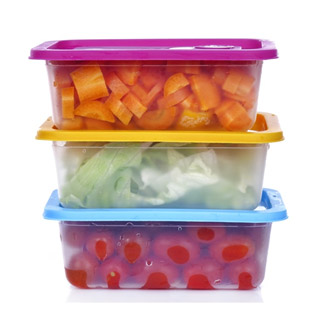Top Tricks to Stop Wasting Food in 2015

Top Tricks to Stop Wasting Food in 2015
While hundreds of millions of people go hungry around the world each day, in many western nations a huge percentage of food actually ends up in landfill. Sadly, in Australia up to 20 percent of all edible items are thrown away, or a combined $8 billion worth. In the United States this figure is even higher, with a 2012 paper by the Natural Resources Defense Council estimating that around 40 percent of the country's food supply ends up in the bin. In fact, the Environmental Protection Agency reported that Americans threw out approximately 35 million tons of food in 2012.
All of these statistics showcase an alarming pattern that does not bode well for the world's ever-increasing population, or for the environment. However, there are plenty of choices you can make to help combat the issue of food wastage in yo
ur home. From shopping and cooking smarter, to staying organised and composting, there are multiple ways to cut back on the amount of your household's food that gets sent to landfill. Read on for some top tricks you can implement in 2015.
Shop Smart
One of the key ways to reduce waste and save some cash is to shop in a considered manner. Many people tend to go grocery shopping without a carefully-planned list, and when they're hungry. As a result, they arrive home with way more food than needed, and plenty of items that they won't actually end up using before the expiry date. You can effectively avoid this type of food wastage by planning your weekly meals ahead of time, and shopping accordingly. Don
't forget to thoroughly investigate the back recesses of your pantry and fridge as well, as often you'll have items there that you forgot about.
You can also save food, cash, and time by shopping online. This will help you to avoid straying from your prepared list and being lured by all those treats or 'too good to miss" deals on the end of the aisles. You'll have all the items you need, and none that you don't, in a fraction of the time it takes to drive to the supermarket, search for a park, and wait in line to pay for your cart. When the groceries arrive at your home, make sure that all the older food is put at the front of your fridge and pantry, and used up before the new items.
 Cook and Eat Creatively
Cook and Eat Creatively
It also makes a big difference if you get creative and whip up meals that make use of all the food items in your kitchen. Search online for recipes that can be made from those things you have in your cupboards, and try to use up all ingredients before rushing out to buy new ones " often times a lot of food gets thrown out simply because it was forgotten about.
Don't be afraid to re-imagine ingredients and to make use of food stuffs that might not look as fresh as the day they were purchased. After all, while fruit and vegies can start to look a little wilted after some time, that doesn't mean they need to be thrown out. Make use of less-than-perfect items by using the produce to create soups, casseroles, sauces, smoothies, or muffins. Alternatively, you can also grate or chop them up (plus herbs too) and place in the freezer for use later on.
Use Your Appliances Well

You can also reduce your food wastage by popping leftover meals and loaves of bread in quality storage containers and freezing them for another time. This not only ensures you don't throw uneaten portions out, but also saves time and money on those nights when you really don't feel like cooking.
You can also ensure that food items last as long as possible in y
our fridge, by keeping the appliance well maintained and running at the optimum temperature of between one and five degrees Celsius.
Check the seals on your refrigerator and freezer on a regular basis to make sure they're working well, and keep an eye on the temperature level. This will help to keep your food fresh and tasty.
Compost
For any leftover food items that you really can't avoid throwing out, pop them in a compost bin instead of your standard garbage bin (or feed to dogs, chickens, or other animals you might own). Lots of produce, particularly things like fruit and vegetable peels, can be quickly and easily composted and then used at a later date for a completely natural and nutrient-rich fertiliser for your garden.
MORE





